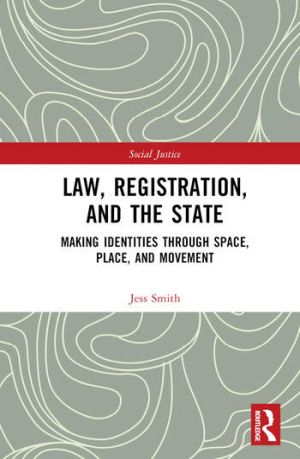
This book provides an original and compelling analysis of registration as a dynamic process which makes and unmakes legal identities.
Critical legal and socio-legal scholarship tends to assume that registration is a textually mediated act of statecraft which governs through the technology of writing. Taking a different approach, this book develops movement as socio-legal method to illustrate the legal, social, and bureaucratic layers of movement which unfold in everyday engagements with the law. The book presents empirical and theoretical analysis of historical, contemporary, and future-oriented places of registration: a community hub, a city of pilgrimage, and the General Register Office. Drawing from diverse perspectives across anthropology, geography, sociology, architecture, and mobility studies, the book argues for an understanding of registration as evolving, socially constructed, and shaped by spatial imaginaries which are materialised in its architecture. This mobile understanding of registration expands conceptual discussions of legal materiality whilst opening up possibilities for legal identities unconstrained by the assumed desirability of stability or endurance.
This interdisciplinary book will appeal primarily to a sociolegal, critical legal, and legal geography readership; but it will also be of interest to those in other disciplines concerned with materiality, movement, and statecraft.